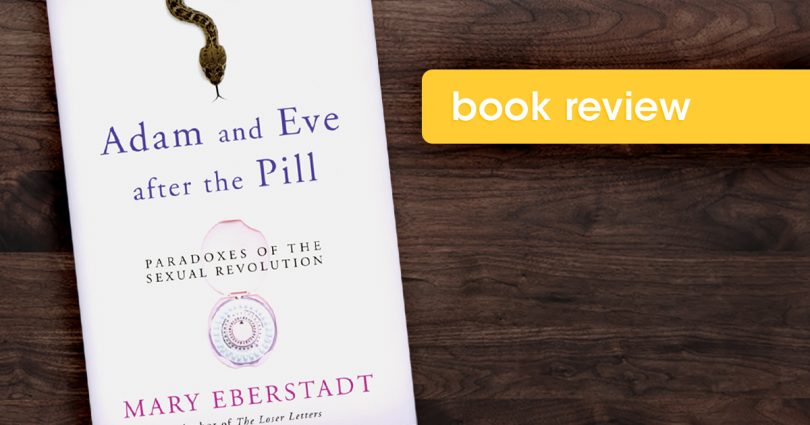As I’ve traveled across the United States to speak about reclaiming God’s plan for sexual health, I’ve often been asked if there is a book that covers the same information I present. I would respond that my material comes from a wide variety of books, studies, research projects, articles, anecdotal evidence, and other sources too numerous to name. Thus, I couldn’t recommend just a single book. Well, now I can!
In Adam and Eve after the Pill, Mary Eberstadt, a research fellow at the Hoover Institution, has synthesized massive amounts of data into one compelling book that provides detailed documentation, allowing the reader to delve deeper. It’s a masterpiece that merges lots of research into a concise picture of the devastating effects of the birth control pill and the sexual revolution it unleashed. It unveils the lies of a culture that aims to replace sex that is both unitive and procreative with purely recreational sex.
Eberstadt aptly describes this culture’s steadfast insistence that the sexual revolution was beneficial—despite overwhelming data to the contrary—as “the will to disbelieve.” She examines the intellectual denial of its devastation and leads readers to recognize that “[f]irst, and contrary to conventional depiction, the sexual revolution has proved a disaster for many men and women; and second, its weight has fallen heaviest on the smallest and weakest shoulders in society—even as it has given extra strength to those already strongest and most predatory” (pp. 15−16).
The sexual revolution has contributed significantly to declining female happiness, the prolonged adolescence and predatory mentality of many men, the pornography plague, date rapes, and child abuse. The author offers insights into its assault on children’s innocence, women’s dignity, men’s humanity, the joys of marriage, and the excitement of birth.
Eberstadt also makes the case that the sexual revolution has caused profound changes even in seemingly unrelated areas of behavior, such as eating habits and smoking. Yesteryear’s laissez-faire attitudes toward food and tobacco parallel today’s laissez-faire attitudes toward sex and pornography—and vice versa.
The last chapter, titled “The Vindication of Humanae Vitae,” provides empirical evidence of the tragic fulfillment of Pope Paul VI’s prophecies in his 1968 encyclical on moral and immoral means of regulating births. Humanae Vitae warned that marriage and society in general would suffer if contraception became widespread. He predicted (in section 17) that it could “open wide the way for marital infidelity and a general lowering of moral standards,” and result in men losing respect for women and governments using procreative technologies coercively.
As faithful Catholics and other conscientious Americans engage in a great battle against the Health and Human Services contraceptive mandate, we must all become better informed about Humanae Vitae’s message. Eberstadt’s book is a must-read, because it attests that even secular scholars’ research confirms contraception’s deleterious social effects—and hence the validity of Catholic moral teaching.
Adam and Eve after the Pill: Paradoxes of the Sexual Revolution by Mary Eberstadt, Ignatius Press, 2012, 175 pages, $16.95 (paperback)


Facebook Comments